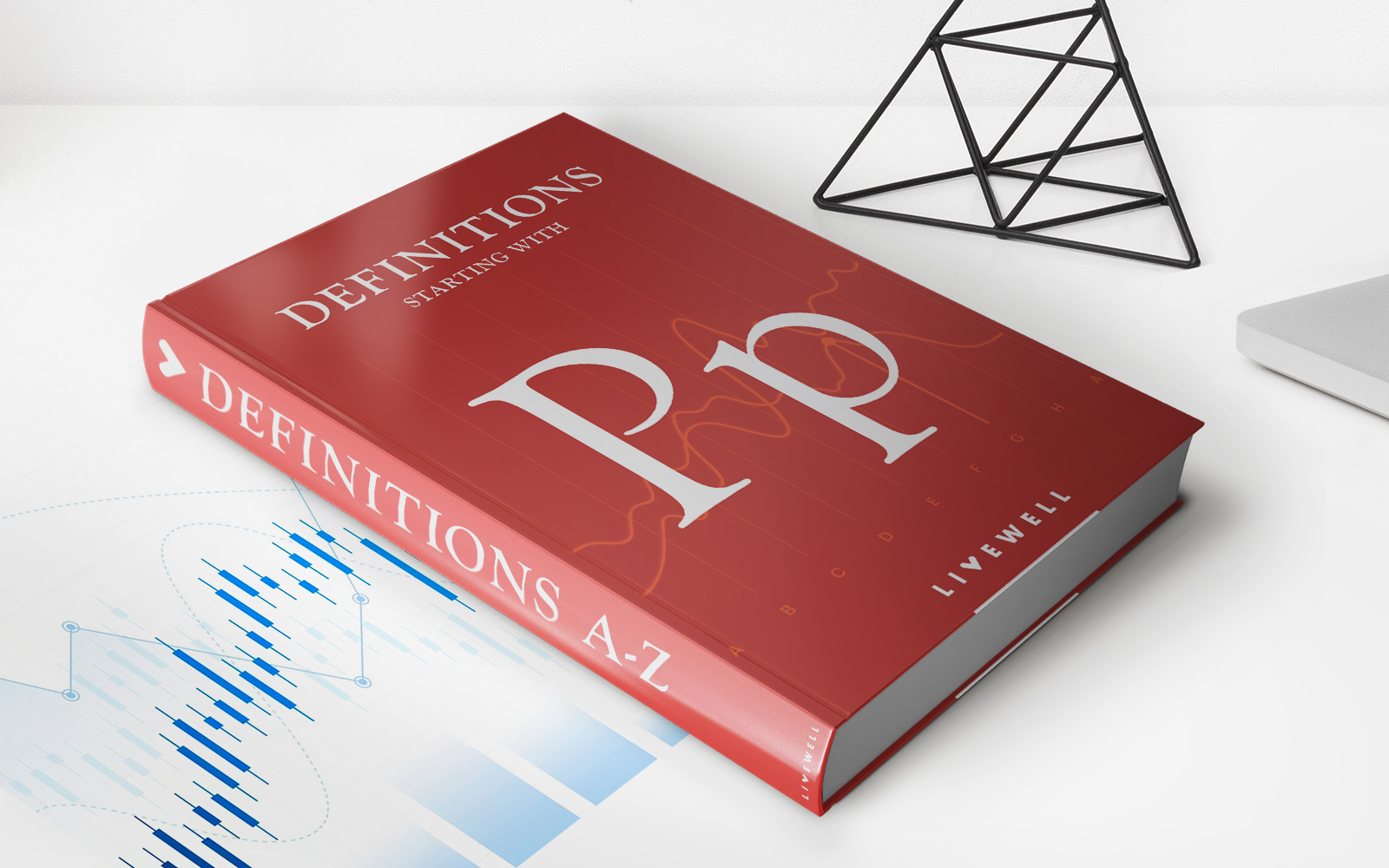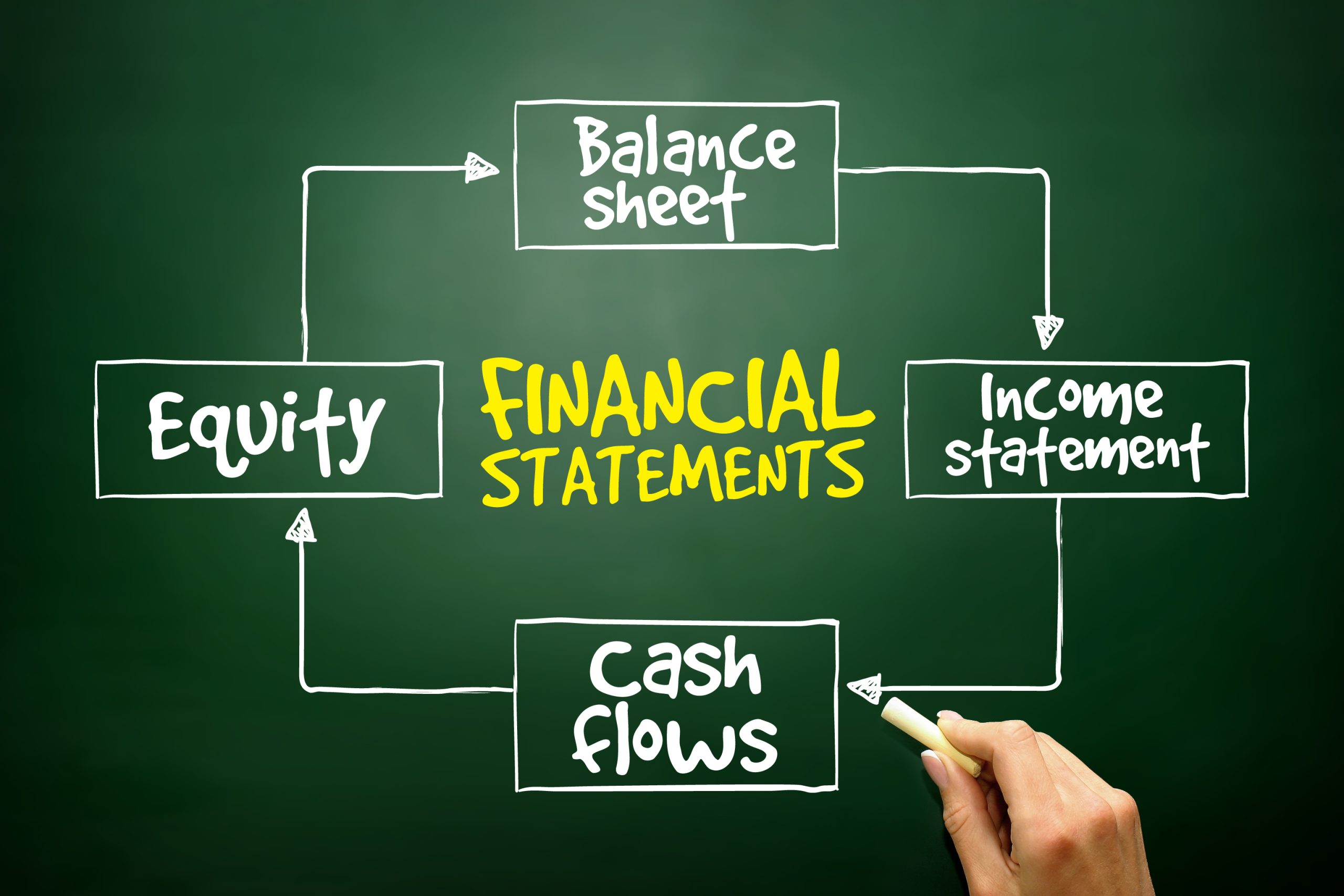

Finance
What Are Equity Securities
Published: November 26, 2023
Looking to understand finance? Learn about equity securities and how they play a crucial role in the world of finance. Discover their benefits and risks today.
(Many of the links in this article redirect to a specific reviewed product. Your purchase of these products through affiliate links helps to generate commission for LiveWell, at no extra cost. Learn more)
Table of Contents
- Introduction
- Definition of Equity Securities
- Characteristics of Equity Securities
- Types of Equity Securities
- Common Stock
- Preferred Stock
- Convertible Securities
- Equity Securities vs. Debt Securities
- Benefits and Risks of Investing in Equity Securities
- Factors to Consider while Investing in Equity Securities
- Conclusion
Introduction
Welcome to the world of finance! In this article, we will explore the fascinating realm of equity securities. Whether you’re a seasoned investor or just dipping your toes into the financial markets, understanding equity securities is essential for making informed investment decisions.
Equity securities are a vital component of the capital markets, representing ownership in a company. Unlike debt securities, which represent a loan or obligation, equity securities grant investors ownership rights and a claim on the company’s assets and earnings.
Equity securities offer investors the opportunity to participate in a company’s growth and share in its profits through dividends and capital appreciation. However, they also come with their own set of risks and considerations. It’s crucial to delve into their characteristics, types, benefits, and risks to comprehend their role in an investment portfolio.
In this article, we will discuss the various types of equity securities, including common stock, preferred stock, and convertible securities. We will also explore the key differences between equity securities and debt securities, and the benefits and risks associated with investing in equity securities.
Whether you’re interested in investing for the long term or looking for potential short-term gains, understanding equity securities will provide you with valuable insights and empower you to make sound investment decisions.
So, let’s dive in and explore the world of equity securities!
Definition of Equity Securities
Equity securities, also known as stocks or shares, represent ownership in a company and provide investors with a claim on its assets and earnings. When you own equity securities, you become a partial owner or shareholder of the company.
Equity securities are issued by both public and private companies. Publicly traded equity securities are listed on stock exchanges, where investors can buy and sell them. Private equity securities are typically offered to a select group of investors or held by the company’s founders and employees.
Ownership of equity securities entitles investors to certain rights, such as voting rights in company decisions and a share in the company’s profits through dividends. Unlike debt securities, equity securities do not have a fixed maturity date and do not pay interest. Instead, their value is influenced by various factors, including the company’s financial performance, market conditions, and investor sentiment.
Equity securities can be categorized into different classes, such as common stock and preferred stock, each with its own set of characteristics and rights. Investors can also choose to invest in convertible securities, which can be converted into common stock at a predetermined price.
Overall, equity securities represent an ownership stake in a company and offer investors the potential for both income and capital appreciation. However, it’s important to note that investing in equity securities carries risks, and the value of these securities can fluctuate significantly based on market conditions and the performance of the underlying company.
Now that we have a clear understanding of what equity securities are, let’s explore their characteristics and how they differ from other types of securities.
Characteristics of Equity Securities
Equity securities possess several distinctive characteristics that set them apart from other types of securities. Understanding these characteristics is crucial for investors looking to build a diversified portfolio. Let’s delve into the key features of equity securities:
- Ownership: When you invest in equity securities, you become a partial owner or shareholder of the company. This ownership entitles you to certain rights, such as voting in company decisions, receiving dividends, and participating in the company’s growth.
- Variable Returns: Unlike debt securities, such as bonds, equity securities do not have a fixed return. Instead, the returns on equity securities can vary and depend on the company’s performance and market conditions. Investors can earn income through dividends, which are a portion of the company’s profits paid to shareholders.
- Capital Appreciation: Equity securities offer the potential for capital appreciation, meaning the value of the securities can increase over time. This can occur as a result of the company’s growth, improved financial performance, or positive market sentiment.
- Residual Claim: As owners of equity securities, shareholders have a residual claim on the company’s assets. In the event of liquidation or bankruptcy, equity holders have a priority position in receiving the remaining assets after the company’s debt obligations are fulfilled.
- Risk and Volatility: Equity securities are generally considered riskier than debt securities due to their vulnerability to market fluctuations. The value of equity securities can be affected by various factors, including economic conditions, industry trends, company-specific news, and investor sentiment. This volatility can lead to substantial price swings, presenting both opportunities and risks.
- Limited Liability: One advantage of investing in equity securities is that shareholders typically have limited liability. This means that their personal assets are not at risk beyond the amount invested in the securities. However, it’s important to note that some legal provisions can hold shareholders liable under certain circumstances.
These characteristics make equity securities an appealing investment option for those seeking both income and potential growth. However, it’s essential to evaluate these characteristics alongside other factors, such as the company’s financial health, industry dynamics, and your own risk tolerance, when considering investments in equity securities.
Now that we understand the key characteristics of equity securities, let’s delve into the different types of equity securities available in the market.
Types of Equity Securities
Equity securities encompass various types, each with its own unique features and rights. Understanding these different types is crucial for investors seeking to diversify their portfolios. Let’s explore the most common types of equity securities:
- Common Stock: Common stock is the most prevalent type of equity security. When you own common stock, you have voting rights in company decisions and the potential to receive dividends, although they are not guaranteed. Common stockholders also have a claim on the company’s assets and earnings, but their claims are subordinate to those of creditors and preferred stockholders in the event of liquidation or bankruptcy.
- Preferred Stock: Preferred stockholders have a higher claim on a company’s assets and earnings compared to common stockholders. They typically have a fixed dividend rate, which is paid out before any dividends are distributed to common stockholders. Preferred stockholders generally do not have voting rights like common stockholders, unless there are specific circumstances where their voting rights can be exercised.
- Convertible Securities: Convertible securities are hybrid instruments that combine features of both equity and debt securities. These securities, typically bonds or preferred stock, can be converted into common stock at a predetermined price and within a specified timeframe. By holding convertible securities, investors have the option to convert them into equity securities if the company’s stock price reaches a certain level, providing an opportunity for potential capital appreciation.
It’s important to note that these are not the only types of equity securities available, but they are the most commonly traded and discussed in financial markets. Different companies and jurisdictions may have variations or additional types of equity securities based on regulations and company structures.
As an investor, understanding the characteristics and rights associated with each type of equity security is crucial for making informed investment decisions. The choice between common stock, preferred stock, or convertible securities should align with your investment goals, risk tolerance, and desired return expectations.
Now that we’ve explored the various types of equity securities, let’s examine the differences between equity securities and debt securities.
Common Stock
Common stock is the most prevalent type of equity security and represents ownership in a company. When you own common stock, you become a shareholder and have certain rights and privileges. Let’s explore the key features of common stock:
- Voting Rights: Common stockholders have the right to vote on important corporate matters, such as the election of the board of directors and major business decisions. The voting power is typically proportional to the number of shares owned.
- Dividend Potential: Common stockholders may receive dividends if the company distributes a portion of its profits to shareholders. However, dividends are not guaranteed and are at the discretion of the company’s management. Companies can choose to reinvest profits instead of paying dividends to fuel growth.
- Residual Claim: In the event of liquidation or bankruptcy, common stockholders have a residual claim on the company’s assets. However, their claims are subordinate to those of creditors and preferred stockholders. This means common stockholders are likely to receive a distribution from the remaining assets only after all other obligations are fulfilled.
- Capital Appreciation: Common stock provides the potential for capital appreciation as the company’s value increases over time. The stock price can rise due to various factors, including positive financial performance, new product launches, strategic partnerships, or market demand for the company’s products or services.
- Risk and Volatility: Common stock investments come with inherent risks. The value of common stock can fluctuate significantly based on market conditions, economic factors, industry performance, and company-specific events. Price volatility can present both opportunities and risks for investors.
- Limited Liability: Like other equity securities, common stockholders typically have limited liability. Their personal assets are not at risk beyond the amount invested in the stock. However, certain legal provisions can hold shareholders liable under specific circumstances, such as fraudulent activities or illegal actions.
As an investor, common stock offers the potential for long-term growth and the opportunity to participate in the success of a company. However, it’s important to carefully assess the company’s financial health, industry dynamics, management team, and growth prospects before investing in common stock.
Common stock represents a vital component of many investment portfolios, providing the potential for capital appreciation and dividend income. By diversifying across different common stocks, sectors, and geographic regions, investors can manage risks and capture opportunities in the dynamic world of equity securities.
Now that we have explored common stock, let’s move on to the next type of equity security: preferred stock.
Preferred Stock
Preferred stock is another type of equity security that offers a different set of characteristics compared to common stock. While it represents ownership in a company, preferred stock has distinct features that appeal to certain investors. Let’s delve into the key aspects of preferred stock:
- Dividend Priority: Preferred stockholders have a higher claim on a company’s earnings compared to common stockholders. They typically receive a fixed dividend rate, which is predetermined at the time of issuance. Preferred stock dividends are paid out before any dividends are distributed to common stockholders.
- Preference in Asset Distribution: In the event of liquidation or bankruptcy, preferred stockholders have a higher priority in receiving the company’s remaining assets compared to common stockholders. They have a greater chance of receiving their investment back, though this is subject to the company’s financial situation and the claims of creditors.
- Limited or No Voting Rights: Unlike common stockholders, preferred stockholders often do not have voting rights or have limited voting rights. This means they do not typically participate in voting on company decisions and policies.
- Fixed or Adjustable Dividend Rate: Preferred stock can have either a fixed dividend rate or an adjustable rate tied to a benchmark, such as the prevailing interest rate. Fixed dividend rates provide more certainty to investors, while adjustable rates allow for potential adjustments based on market conditions or the company’s financial performance.
- Lower Volatility: Preferred stock tends to exhibit lower price volatility compared to common stock. This is because preferred stock is less influenced by changes in the company’s value and more impacted by interest rate fluctuations and market demand for income-generating securities.
- Callable and Convertible Features: Some preferred stock issues may have callable or convertible features. Callable preferred stock provides the issuer with the right to redeem the shares at a specified price after a certain period. Convertible preferred stock allows the shareholder to convert their shares into a predetermined number of common stock shares.
Preferred stock is often favored by income-oriented investors seeking stable cash flow and a higher level of priority in receiving dividends and asset distributions. The fixed dividend payments provide a predictable source of income, making preferred stock an attractive choice for those looking for regular income from their investments.
However, it’s important to note that preferred stock is still subject to market risks and uncertainties. The price of preferred stock can fluctuate, especially in response to changes in interest rates or perceived changes in the financial health of the issuing company.
By incorporating preferred stock into an investment portfolio, investors can diversify their holdings and balance the potential for capital appreciation with a stable income stream. Understanding the features and characteristics of preferred stock is essential for evaluating its suitability within an overall investment strategy.
Now that we have explored preferred stock, let’s move on to the next topic: convertible securities.
Convertible Securities
Convertible securities are a unique type of equity security that combines features of both debt and equity instruments. These securities allow investors to convert their holdings into a specified number of common stock shares at a predetermined price within a given timeframe. Let’s explore the key aspects of convertible securities:
- Convertible Bonds and Preferred Stock: The most common types of convertible securities are convertible bonds and convertible preferred stock. Convertible bonds are corporate bonds that can be converted into a specific number of common stock shares, while convertible preferred stock allows investors to convert their shares into common stock.
- Conversion Ratio and Price: Each convertible security has a conversion ratio, which specifies the number of common shares received upon conversion. Additionally, a conversion price is set, determining the price at which the conversion takes place. These terms are predetermined and outlined in the security’s offering prospectus.
- Potential for Capital Appreciation: Convertible securities offer investors the opportunity to benefit from capital appreciation if the underlying common stock price increases. By converting their securities into common stock, investors can participate in the growth potential of the issuing company.
- Income Generation: Until conversion occurs, convertible securities typically provide a fixed income to investors. Convertible bonds pay regular interest payments, while convertible preferred stock offers preferred dividends. This income component enhances the appeal of convertible securities for investors seeking both income generation and potential capital gains.
- Risk and Volatility: Convertible securities, like any investment, carry risks. The value of a convertible security can be influenced by changes in interest rates, the underlying stock price, and market conditions. It’s important to assess the financial health of the issuing company and evaluate the potential risks and rewards of the convertible security.
- Flexibility and Choice: Convertible securities provide investors with flexibility and choice. They have the option to either hold the security until maturity or convert it into common stock before or at maturity. This flexibility allows investors to adapt to changing market conditions and take advantage of potential opportunities.
Investing in convertible securities can be attractive for investors who want exposure to the upside potential of common stock while still having the protection of a fixed income instrument. By choosing convertible securities, investors can benefit from both income generation and potential capital appreciation.
It’s important to carefully evaluate the terms and conditions of convertible securities, including conversion ratios, conversion prices, and the financial health of the issuing company. Understanding the risks and potential rewards is vital to making informed investment decisions in this unique segment of the equity securities market.
Now that we have explored the various types of equity securities, it’s important to understand how equity securities differ from debt securities.
Equity Securities vs. Debt Securities
Equity securities and debt securities are two primary categories of financial instruments that offer different ownership rights and cash flow characteristics to investors. Let’s examine the key differences between equity securities and debt securities:
Ownership: Equity securities represent ownership in a company, providing shareholders with voting rights and the opportunity to participate in the company’s success. Debt securities, on the other hand, do not confer ownership. Instead, they represent a loan or obligation by the issuer to the investor.
Return on Investment: Equity securities offer the potential for both income and capital appreciation. Investors in equity securities can earn income through dividends and benefit from capital appreciation if the stock price increases. Debt securities, such as bonds, provide a fixed rate of return through periodic interest payments and the return of the principal amount upon maturity.
Priority in Claims: In the event of liquidation or bankruptcy, debt securities holders have a higher priority claim on the issuer’s assets compared to equity securities holders. Debt securities holders, such as bondholders, have a greater likelihood of recovering their investment before equity securities holders receive any remaining assets.
Risk and Volatility: Equity securities generally carry higher risks compared to debt securities. The value of equity securities can fluctuate significantly due to factors such as market conditions, company performance, and investor sentiment. Debt securities, in contrast, have fixed payments and are typically considered less volatile, providing a more predictable return.
Legal Obligations: Equity securities holders do not have a legal obligation to repay the invested amount. They bear the risk of losing their investment if the company performs poorly. Debt securities holders, however, have a contractual obligation to repay the principal and interest according to the terms of the debt agreement.
Decision-making Rights: Equity securities holders have the right to vote on important company matters, such as the election of board members and major business decisions. Debt securities holders generally do not have voting rights unless specified in the security’s terms and conditions.
It’s important for investors to consider their objectives, risk tolerance, and income requirements when choosing between equity securities and debt securities. Equity securities offer the potential for higher returns but come with greater risk and volatility. Debt securities, on the other hand, offer more predictable income but generally have lower potential returns.
Diversification across both equity and debt securities can help mitigate risk and provide a balanced portfolio. By combining both types of securities, investors can benefit from the income stability of debt securities and the growth potential of equity securities.
Now that we have examined the differences between equity securities and debt securities, let’s explore the benefits and risks associated with investing in equity securities.
Benefits and Risks of Investing in Equity Securities
Investing in equity securities offers a range of benefits as well as certain risks. Understanding these advantages and risks is essential for investors considering equity investments. Let’s explore the benefits and risks of investing in equity securities:
Benefits:
- Potential for Capital Appreciation: Equity securities offer the potential for capital appreciation as the value of the underlying company increases. Investors can benefit from price appreciation over the long term, leading to potential gains and increased wealth.
- Dividend Income: Many equity securities, especially common stocks, provide investors with the opportunity to receive dividends. Dividend income can be an attractive source of regular cash flow, especially for income-oriented investors.
- Ownership and Voting Rights: By investing in equity securities, investors become partial owners of the company. This grants them voting rights, allowing them to participate in major decisions, such as the appointment of company directors and corporate policies.
- Diversification: Equity securities enable investors to diversify their portfolios across various sectors, industries, and geographic regions. By spreading investments across different companies, investors reduce the risk associated with being heavily reliant on a single investment.
- Inflation Hedge: Historically, equity investments have provided a hedge against inflation. The growth potential of stocks means that, over time, stock prices have tended to rise in line with the overall increase in prices.
Risks:
- Market Volatility: Equity securities are subject to market volatility. The value of stocks can fluctuate significantly due to changes in market conditions, economic factors, and even investor sentiment. These price fluctuations can result in potential losses for investors.
- Company-Specific Risk: Investing in individual companies carries the risk of company-specific events. Factors such as poor financial performance, management issues, competitive pressures, or adverse regulatory changes can impact the financial health and value of the company’s stock.
- Liquidation Risk: In the event of a company’s liquidation or bankruptcy, equity securities holders are subordinate to debt securities holders and face the risk of losing their investment entirely. They have a residual claim on the company’s assets, meaning their claims are secondary to the claims of creditors.
- Uncertainty of Dividends: While many companies pay regular dividends, there is no guarantee of dividend payments. Companies can choose to reduce or suspend dividend payments based on a variety of factors, including financial performance, cash flow constraints, or strategic considerations.
- Psychological Factors: Investing in equity securities requires a strong emotional and psychological mindset. The volatility of stock prices and the potential for short-term losses can lead to emotional decision-making, such as panic selling during market downturns, which may negatively impact investment returns.
It’s important for investors to carefully evaluate the benefits and risks of investing in equity securities, align them with their financial goals and risk tolerance, and diversify their portfolios accordingly. Seeking professional advice and conducting thorough research can help investors make informed decisions and navigate the complexities of the equity market.
Now that we have explored the benefits and risks of investing in equity securities, let’s consider some factors to consider while investing in equity securities.
Factors to Consider while Investing in Equity Securities
Investing in equity securities requires careful consideration of various factors to make informed investment decisions. These factors help investors evaluate the potential risks, returns, and suitability of equity securities for their portfolios. Let’s explore some key factors to consider while investing in equity securities:
- Company Financials: Analyzing a company’s financial statements, such as its balance sheet, income statement, and cash flow statement, provides insights into the company’s financial health, profitability, and ability to generate sustainable earnings.
- Industry Analysis: Understanding the dynamics and trends of the industry in which the company operates is crucial. Factors such as competition, market size, regulatory environment, and technological advancements can impact a company’s growth prospects and stock performance.
- Management Team: Assessing the competence and track record of a company’s management team is important. Strong leadership, industry expertise, and a clear strategic vision are indicators of effective management, which can contribute to a company’s success.
- Earnings Growth Potential: Evaluating a company’s historical and projected earnings growth is vital. Companies with consistent and sustainable earnings growth have the potential to generate higher stock returns over the long term.
- Valuation: Determining whether a stock is overvalued, undervalued, or fairly priced is essential. Ratios such as price-to-earnings (P/E) ratio, price-to-sales (P/S) ratio, and price-to-book (P/B) ratio can help assess a stock’s valuation compared to its peers and historical averages.
- Dividend History and Policy: If income generation is important, analyzing a company’s dividend history and policy is crucial. Is the company consistently paying dividends? Has it increased or decreased dividend payouts over time? Assessing these factors provides clarity on the company’s commitment to returning profits to shareholders.
- Risk Tolerance: Understanding your risk tolerance is essential. Equity securities come with inherent risks, including market volatility and the potential for capital loss. Assessing your risk appetite helps determine the appropriate allocation to equity securities in your investment portfolio.
- Portfolio Diversification: Including equity securities from different sectors and geographic regions helps diversify risk. Spreading investments across various companies and industries mitigates the impact of any single investment on the overall portfolio’s performance.
- Investment Horizon: Consider your investment horizon when investing in equity securities. Stocks are generally suited for long-term investors willing to weather short-term market fluctuations. The longer the investment horizon, the more likely you are to capture the potential benefits of equity investments.
- Market Conditions: Stay informed about macroeconomic factors, market trends, and geopolitical events. Understanding how these factors can impact specific industries and companies is crucial when making investment decisions.
Remember, investing in equity securities requires diligence, research, and a long-term perspective. Regular monitoring of your investments and staying updated on company and market developments is essential for successful investing in equity securities.
By carefully considering these factors, investors can make informed decisions and build a well-structured portfolio that aligns with their financial goals, risk tolerance, and investment timeframe.
Now that we have explored the factors to consider while investing in equity securities, let’s summarize the key points.
Conclusion
Equity securities play a crucial role in the world of finance, offering investors the opportunity to own a stake in companies and participate in their growth and success. Understanding the definition, characteristics, and types of equity securities is essential for making informed investment decisions.
We explored three main types of equity securities: common stock, preferred stock, and convertible securities. Each type has its own unique features and benefits. Common stock provides ownership, voting rights, and the potential for capital appreciation. Preferred stock offers higher priority in dividend payments and asset distribution. Convertible securities combine the features of debt and equity, allowing conversion into common stock.
Equity securities differ from debt securities in terms of ownership rights, return on investment, priority of claims, and risk. Equity securities offer the potential for capital appreciation, dividend income, ownership rights, and a hedge against inflation. However, they also come with risks such as market volatility, company-specific events, and the uncertainty of dividends.
Investing in equity securities requires careful evaluation of factors such as company financials, industry analysis, management team, earnings growth potential, valuation, dividend history, risk tolerance, and portfolio diversification. These factors help investors make informed decisions and manage risks effectively. Regular monitoring of investments and staying updated on market conditions are essential for successful equity investing.
Ultimately, equity securities can be an important component of a well-rounded investment portfolio. By understanding the benefits and risks associated with equity investments and considering the relevant factors, investors can harness the growth potential of the stock market and work towards their financial goals.
Remember, investing in equity securities involves risk, and it’s important to conduct thorough research, seek professional advice if needed, and align investment decisions with your own financial circumstances and objectives.
Now that you have gained valuable insights into equity securities, go forth and navigate the financial markets with confidence!














